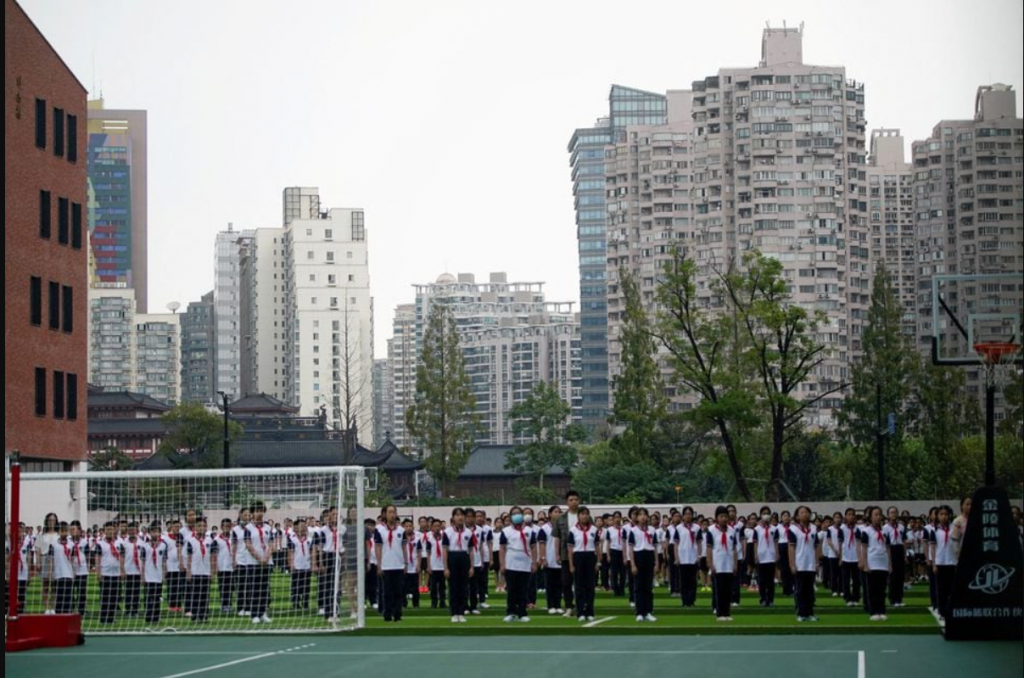Some shareholders of Dulwich College International are in talks for a sale of the British school’s China-heavy Asia operations, two sources said, in the latest indication of how turmoil in China’s $570 billion education industry is forcing overhauls at institutions.
Dozens of international and private schools in China are closing or merging, industry executives said, weighed down by tighter regulation, a slowing economy and dwindling foreign student numbers.Advertisement · Scroll to continue
A rapid expansion prior to the COVID-19 pandemic drove a surge of privately run bilingual schools in China offering a western exam curriculum. But the business stumbled as Beijing imposed new rules in 2021 and cracked down on the private tutoring business, aimed at easing pressure on children and lowering family costs.
Three years of the pandemic and slowing economic growth have exacerbated the challenges, said Julian Fisher, managing director of Venture Education, a Beijing-based market intelligence consultancy specialising in China’s education sector.
“The cynic would say the sector is in terminal decline, the average Chinese investor simply that it’s going through growing pains,” said Fisher.
Dulwich College International operates nine schools in China including bilingual schools catering to Chinese nationals that have been hit hardest by regulatory changes. Besides China, Dulwich International also has schools in Singapore and South Korea.
Strategic plans for growth of its high schools in China were “scaled back in light of changing government regulations”, Dulwich said in its 2022 annual report.
In a response to Reuters about a potential sale of its Asia business, Education in Motion (EiM), which owns and operates the Dulwich College International brand globally, said it was “in the process of bringing in a new strategic financial partner”, adding the process would also allow partners to exit their investments in the group.
It said it was a planned process of refinancing and “not connected to regulatory changes in any market”.
SELF-SUFFICIENCY
China’s schools, which are categorised into public, private and those for foreign passport holders, are crucial to leader Xi Jinping’s strategy to use education to improve the country’s self-sufficiency in science and technology and advance the “great rejuvenation of the Chinese nation on all fronts.”
In 2020 there were around 180,000 private education institutions nationwide, accounting for more than a third of all education institutions in China, with 55.6 million enrolled students, according to the British Council.
However, international schools, which can only enrol students with foreign passports, have mostly seen student numbers decline due to expatriates from countries including the U.S., Britain and Canada leaving after the pandemic and amid rising geopolitical tensions.
Beijing’s crackdown amplified the pressure.
It mandated that Chinese compulsory education be taught in private schools, aligning the curriculum more closely to public schools and making parents question the need to pay private school fees when their children can attend free government schools.
Annual international school tuition fees in Shanghai, for instance, can exceed 300,000 yuan ($41,195).
Authorities have also moved to control the number of private schools.
And just last month, China’s legislature passed a law to strengthen patriotic education in schools that will take effect on Jan. 1, 2024.
“For private primary and high schools, there is tighter regulation. It’s also very difficult for some schools to get their licenses due to tighter control,” said Frank Feng, deputy principal at Lucton, an international high school in Shanghai.
Dozens of schools, from kindergartens to high schools, have shut or stalled in the past two years.
In China’s southern Greater Bay Area, shuttered schools include Dulwich International’s Early Years Centre in Shenzhen, Eton-House international kindergarten and Victoria Kid House in Guangzhou. The companies did not immediately respond to requests for comment.
At Western International School of Shanghai, 20 staff were laid off in August due to an unexpected number of children not returning for the new school year, a direct source said. It did not immediately respond to requests for comment.
Many private education companies, including bilingual and international school operators, have been considering selling their China-based assets, said Jimmy Chin, director at Chinese buyout fund Everpine Capital, which has invested in the education business.
“There are likely more sellers than buyers of education assets in China right now.”
GEOPOLITICS
Universities are also increasingly relaxing requirements on English language, thereby reducing the need for foreign talent to push Xi’s agenda of developing China into a science and technology powerhouse.
A notice from Xi’an Jiaotong University in September said that starting from that month it would not use English proficiency test results for graduation requirements. The University of Science and Technology of China in Anhui announced it was cancelling six undergraduate majors, including English, from October.
Geopolitical tensions have also added to concerns of an English language vacuum, making China more inward-looking.
Nicholas Burns, the U.S. ambassador to China, told an Oct. 11 town hall that the number of American students in China had dropped to as low as 350 from 15,000 in 2015, although that had started to tick up again this year.
A growing positive trend, however, has been the rise of students from Belt and Road countries, said Mathias Boyer, chief financial officer at the International School of Beijing, which is upgrading its facilities to include amenities like a multi-faith prayer room.
“We have to completely rethink what type of expatriates we are going to be having here in the next five to ten years. And it’s going to be less of the traditional Western kind.”

